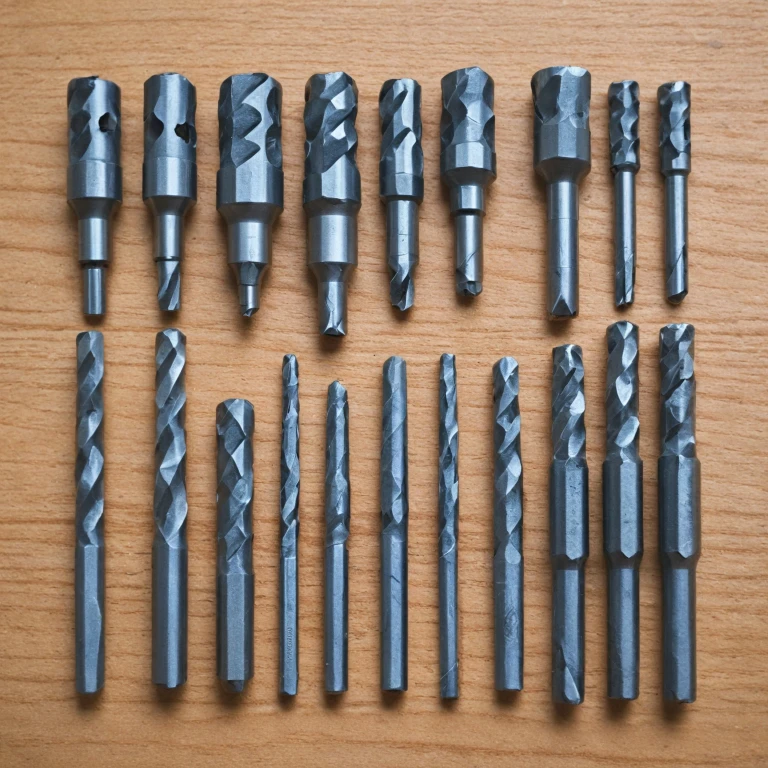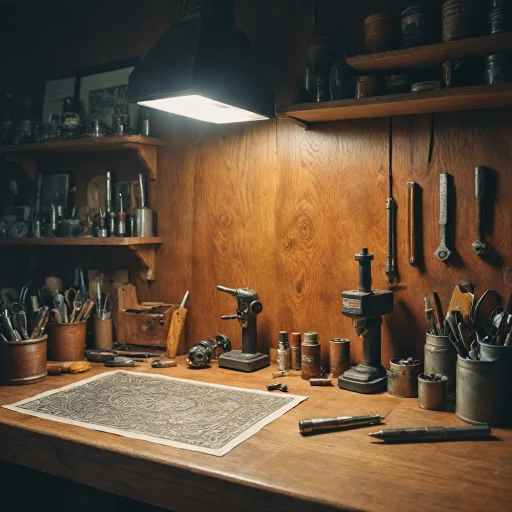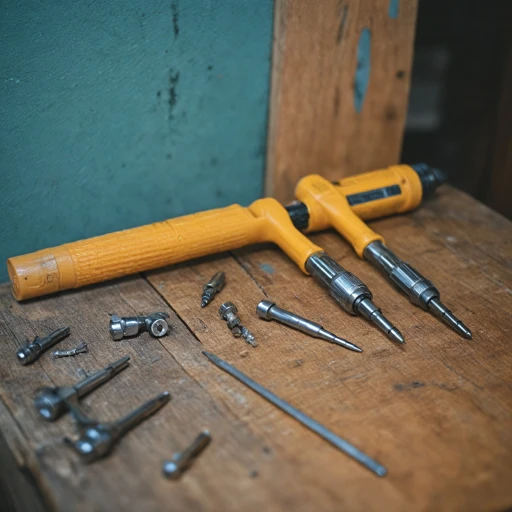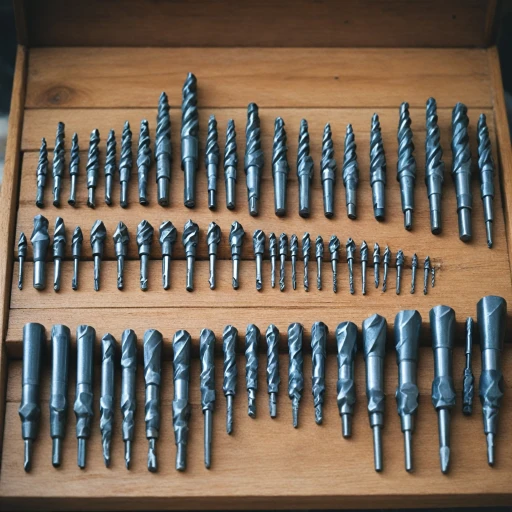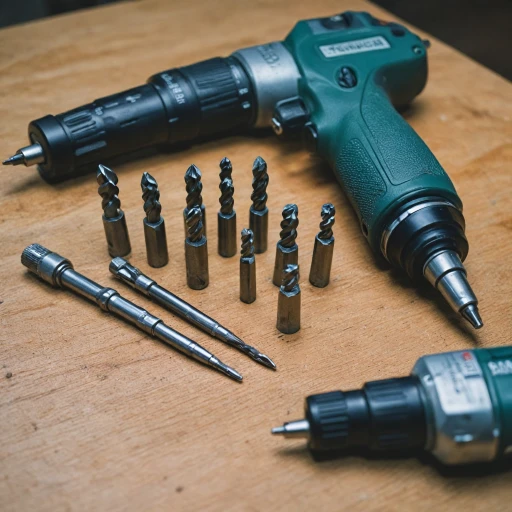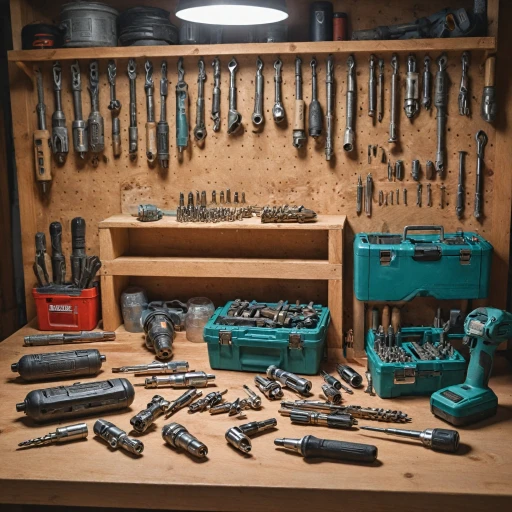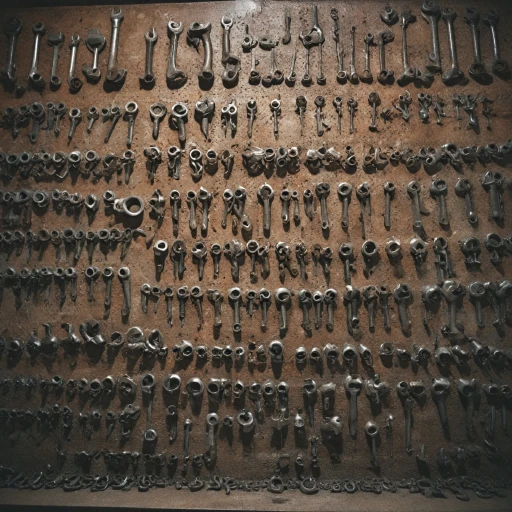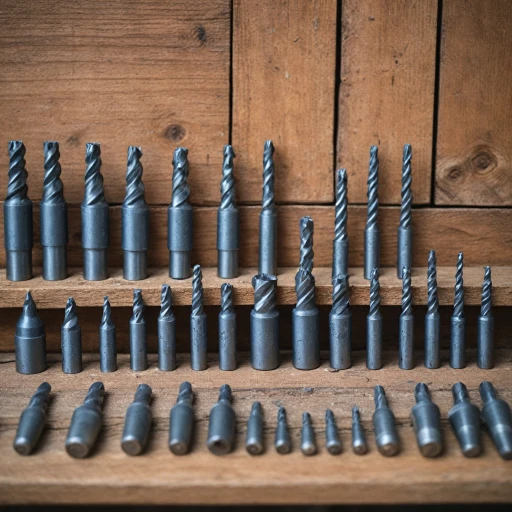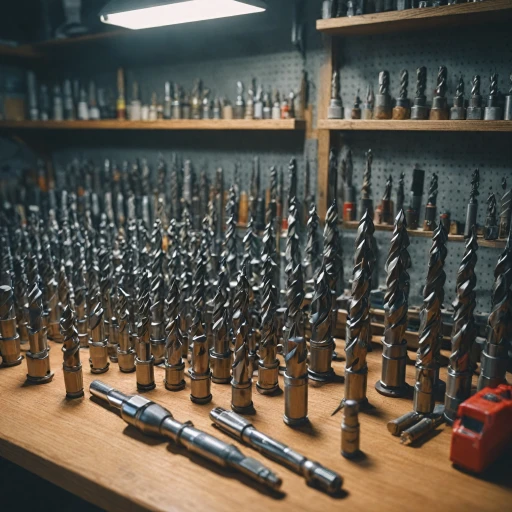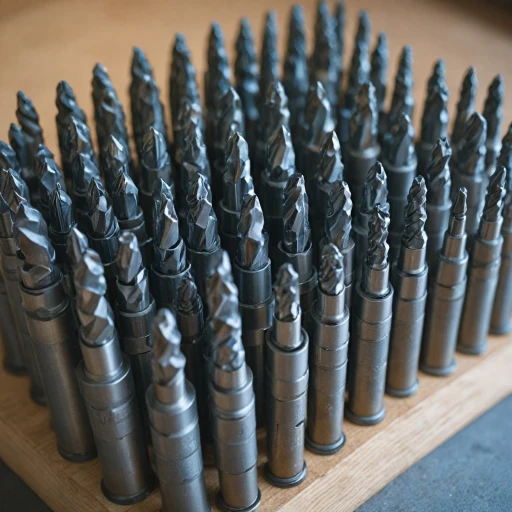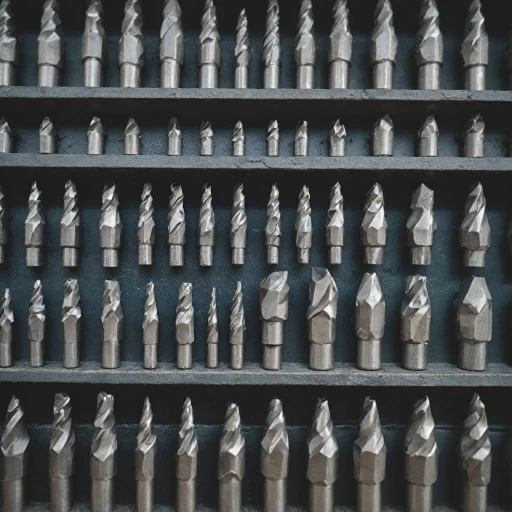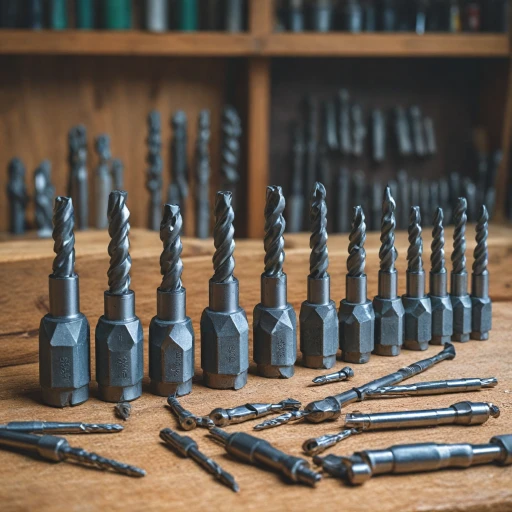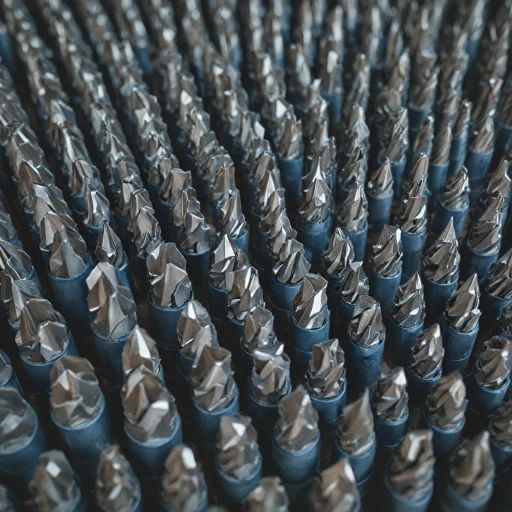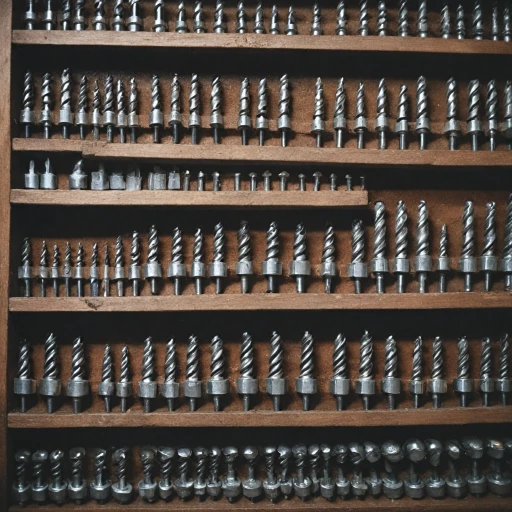
Understanding Drill Bit Materials
{"": "Understanding the Diverse Materials of Drill Bits
When it comes to using a cordless drill set, choosing the right drill bits is crucial for efficiency and performance. The material of the drill bit directly influences its suitability for different applications, whether drilling into wood, metal, or masonry. Let's delve into the various materials available and their characteristics.
High-Speed Steel (HSS): Known for its durability and versatility, HSS drill bits work well on a range of materials such as wood and light metals. If you're looking for a good all-rounder, these are your best bet.
Cobalt Drill Bits: Comprising 5-8% cobalt in the base material, these bits are excellent for drilling into hardened steel and heavy metals. Their high heat resistance makes them invaluable in high-speed or high-friction drilling scenarios. They maintain sharpness and withstand wear well, making them a wise long-term investment.
Black Oxide: These drill bits are treated with a black oxide coating to improve their rust and corrosion resistance. They also reduce friction and heat during drilling, which can enhance the bit's lifespan.
Carbide-Tipped: Often used for masonry drilling, carbide-tipped bits are extremely hard and heat tolerant. They stay sharp longer but can be prone to brittleness, so handle them with care.
Each material has its strengths and specific uses, aligning with different applications and environments. For further insights into the versatility of drill bit types, explore the versatility of hole saw drill bits and expand your toolbox options.
As you explore the different bit types and their uses, paying attention to compatibility and how drill bits withstand various conditions will narrow down the best choices for your needs. Additionally, balancing cost with performance can guide you towards smart purchases, ensuring both quality and longevity in your drill bit selections.
Drill Bit Types and Their Uses
Exploring the Varieties of Drill Bits and Their Applications
Understanding the vast array of drill bit types available can drastically enhance your drilling experience. Choosing the right bit for the task at hand not only ensures efficiency but also prolongs the life of your equipment.Twist Drill Bits: Your All-Rounder
Twist drill bits are arguably the most common and versatile. Suitable for wood, plastic, and even some metals, these bits are easy to recognize with their helical flute patterns. For best results, use high-speed steel or cobalt variants, especially for metal drilling tasks.Spade Bits for Woodwork
When working with wood, spade bits can be your best friend. Designed to drill large holes swiftly, these bits are useful for tasks like framing or running cables through timber. Available in sizes from 1/4 to 1 1/2 inch, they are especially good for softer wood.Step Drill Bits: Multiple Diameters with One Bit
Step drill bits are perfect for creating holes of various sizes in thin materials like sheet metal. Their conical shape provides multiple diameters, eliminating the need to constantly switch bits. Opt for titanium or cobalt-coated varieties for increased durability.Black Oxide and Cobalt Bits for Metal
For metal drilling, black oxide and cobalt bits are highly recommended. Cobalt bits are particularly known for their ability to cut through hardened steel and stainless steel, making them a solid choice for tougher jobs. Black oxide bits are more cost-effective and provide a good balance of performance and longevity.Specialized Masonry Drill Bits
Drilling into concrete or brick requires masonry drill bits, which come equipped with a tungsten carbide tip. These bits perform well under harsh conditions but should be deployed at lower speeds to prevent overheating.Compatibility with Cordless Drills
Ensuring Your Drill Bits Fit Your Cordless Drill
When it comes to selecting drill bits for your cordless drill set, compatibility plays a crucial role. It's essential to understand if the bits you choose are suitable for the specific chuck size and power of your drill. A well-matched bit set ensures efficient drilling and prolongs the lifespan of both the bits and the drill.
The standard chuck size for most cordless drills is either 3/8 inch or 1/2 inch, which determines the shaft diameter that your drill can accommodate. If you are working with a high-speed drill press, the choice of cobalt bits or black oxide options can offer enhanced performance, especially when metal drilling.
Your drill's power settings also matter. A powerful cordless drill can handle tougher materials, such as hardened and stainless steel, with better efficiency, making cobalt and black oxide bits ideal choices. However, if you are drilling softer materials like wood, simpler and more cost-effective spade bits might be sufficient.
Moreover, split point and high speed steel bits are recognized for their ability to prevent the bit from skating on the material’s surface, which is crucial for creating precise holes. Ensuring that your drill bits are compatible with your cordless drill is key to achieving the best result.
Durability and Longevity of Drill Bits
Assessing the Strength and Lifespan of Your Drill Bits
When investing in your drilling toolkit, durability and longevity of drill bits are crucial factors to consider. The effectiveness and lifespan of drill bits vary based on their material, design, and the type of work they are put through. To ensure that your drill set performs at its best, understanding the strength and resilience of different drill bit materials is essential. Cobalt drill bits, known for their robustness, are excellent for metal drilling. They can tackle challenging materials like hardened steel and stainless steel, enduring higher temperatures without losing their cutting edge. This makes cobalt bits a superb choice for professionals who frequently drill into metal. On the other end, black oxide drill bits offer good performance for general applications and wood drilling. They're a more budget-friendly option, suited for those who handle less intensive workloads. Black oxide bits provide a protective coating, reducing wear and corrosion, which contributes to their prolonged usability. High-speed steel (HSS) drill bits are prevalent in most drill bit sets. These are versatile and can be used for drilling wood, plastic, and metal. However, they may not last as long when subjected to sustained heavy-duty drilling, due to their susceptibility to heat. Drill bits with a split point design enhance precision and speed by preventing the bit from wandering on the workpiece. This is crucial when accuracy is paramount, such as drilling consistent-sized holes in closely measured piece work. Spade bits, while ideal for creating large holes in wood, require careful handling to avoid fast wear. Opting for higher quality bits like those made from cobalt or featuring a split point design can provide more reliable and efficient drilling performance. Yet, these bits may be costlier. Weighing the balance between cost and performance ensures you buy a set that aligns with your usage and budget needs. A well-rounded collection of drill bits, complete with a mix of cobalt, HSS, and black oxide variants, will prepare you for any task at hand, increasing your drill set's utility manyfold. Selecting drill bits thoughtfully not only maximizes the value of your drill but also prolongs the life of your entire drilling setup. Keeping in mind these factors will help you make informed decisions and maintain superior hole-drilling capabilities throughout your projects.Cost vs. Performance: Finding the Balance
Balancing Cost and Performance in Drill Bit Selection
When investing in a drill bit set, finding the right balance between cost and performance is crucial. High-quality drill bits often come with a higher price tag, but they can save you money in the long run by lasting longer and performing better. Here's what to consider:
- Material Matters: Cobalt drill bits are more expensive but offer superior durability and performance, especially when drilling through hardened steel or stainless steel. For general-purpose drilling, high-speed steel (HSS) bits are a good choice.
- Type of Work: Consider what you’ll be drilling most often. For metal drilling, cobalt or black oxide bits are recommended. For wood, spade bits or split point bits work well.
- Frequency of Use: If you’re a professional or frequent DIYer, investing in a high-quality set may be worthwhile. Occasional users might opt for a more affordable set that still meets their needs.
- Set Size: A larger piece set may offer better value, providing a range of sizes from 1/16 inch to 1/2 inch, allowing for versatility in creating holes of various diameters.
- Brand Reputation: Brands known for quality, such as Drill Doctor, often provide reliable products that justify their higher cost.
Ultimately, the best drill bit set for you will depend on your specific needs and budget. Remember, a well-chosen set can enhance the performance of your cordless drill, making your projects more efficient and enjoyable.
Tips for Maintaining Your Drill Bits
Proper Care for Prolonged Use
To ensure that your drill bits remain in optimum condition and offer the best performance over time, maintenance is key. Here are some straightforward tips to help you extend the life of your drilling tools:
- Regular Cleaning: After each use, it's crucial to clean your drill bits by removing any debris. This prevents build-up that can dull the bit and reduce efficiency. For metal drilling, wipe the bits with a cloth to remove metal shavings.
- Proper Storage: Store your bits in a secure container or piece set. This prevents damage like chipping and helps you keep track of your entire bit set. Many manufacturers include a storage case when you buy their products, suitable for organizing a range of pieces from spade bits to masonry drill bits.
- Avoid Overheating: When drilling, particularly through materials like metal or wood, ensure you don't push too hard. Excessive friction generates heat, which can wear down the bit faster. Using a drill press can help maintain constant speed and pressure.
- Use the Right Bit at the Right Speed: Drill bits, especially those like cobalt drill and high-speed steel variants, should be used at manufacturer-recommended speeds. Slower speeds reduce friction, especially when cutting through hardened steel or stainless steel. A split point bit reduces the amount of pressure needed, further preventing overheating.
- Sharpening When Necessary: If you notice your bits aren’t cutting as well as they used to, it might be time to sharpen them. Using a tool like the Drill Doctor can return a bit to its original efficiency, allowing you to drill clean holes with minimal effort.
By following these steps, your drill bits, whether they are cobalt bits or black oxide bits, will retain their cutting power, ensuring every hole you make is as clean as the first.

